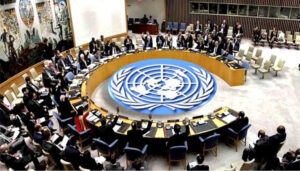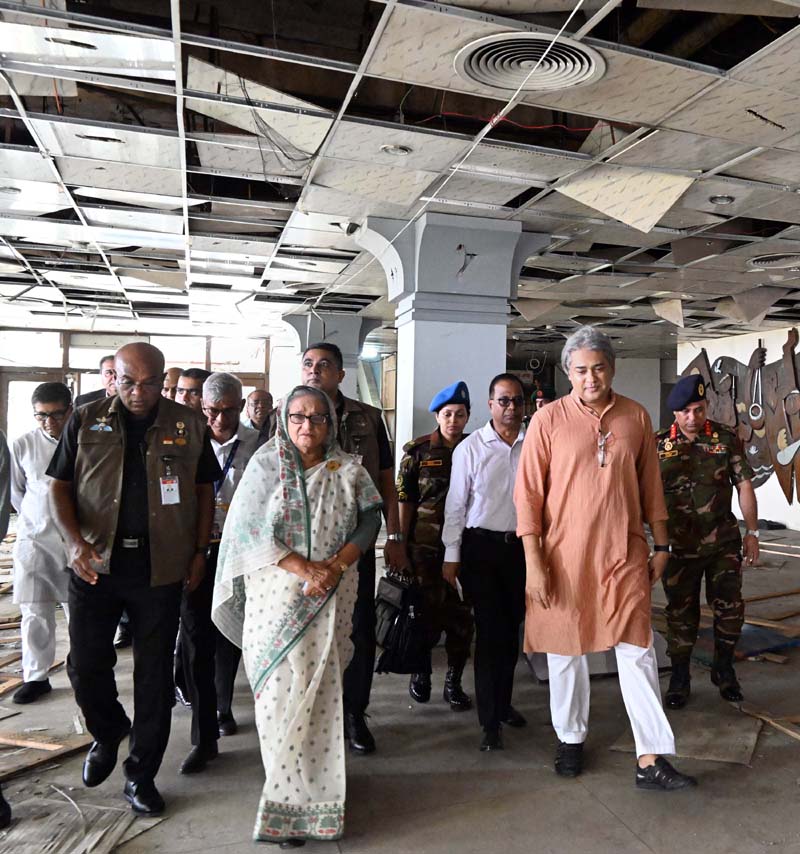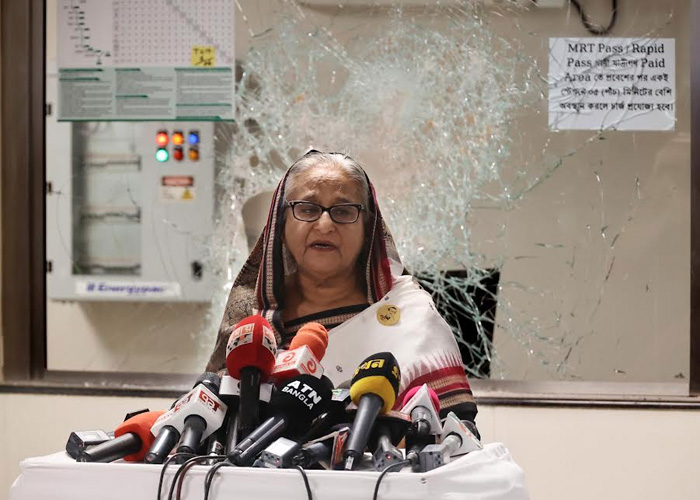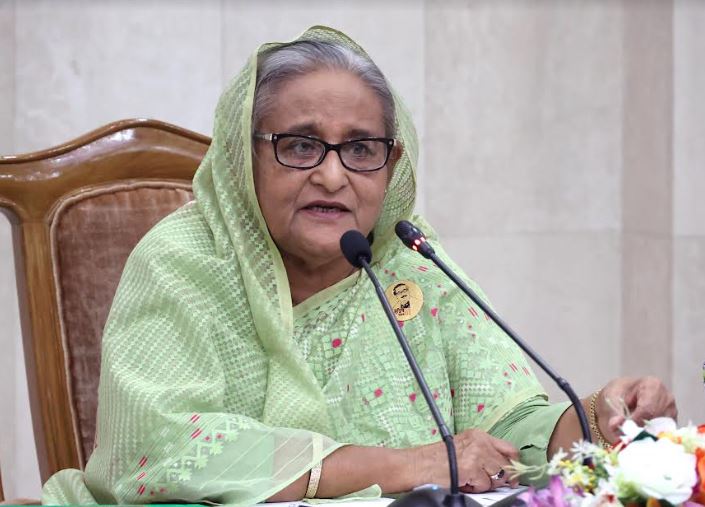 Doreen Chowdhury: On 10th December, the world will celebrate Global Human Rights Day. Every year the day is observed to commemorate the adoption of the Universal Declaration on Human Rights (UDHR) in 1948. This year the theme of the event is ‘Dignity, Freedom, and Justice for All’. It is the 74th anniversary of the declaration. Through this year’s celebration, the UN will also launch a year-long campaign to showcase UDHR’s relevance, legacy and activism to commemorate the 75th anniversary next year.
Doreen Chowdhury: On 10th December, the world will celebrate Global Human Rights Day. Every year the day is observed to commemorate the adoption of the Universal Declaration on Human Rights (UDHR) in 1948. This year the theme of the event is ‘Dignity, Freedom, and Justice for All’. It is the 74th anniversary of the declaration. Through this year’s celebration, the UN will also launch a year-long campaign to showcase UDHR’s relevance, legacy and activism to commemorate the 75th anniversary next year.
The day is important for all member states as they have adopted the declaration together. Through this declaration, they committed 74 years ago to uphold Human Rights.
However, the day also begets special attention as the pandemic has deteriorated the human rights scenario worldwide. The inward economic policies by the states, growing racism worldwide, rampant xenophobia, especially in the west, soaring global inflation, increasing precarity in work, and ever-widening inequality are posing a severe challenge to our Human rights. Moreover, civil wars, military interventions, sanctions, and blockades further deteriorate the situation.
Democratic Backsliding and Deteriorating Human Rights Worldwide
Democratic backsliding has become visible in the 21st Century. Globally, democratic values are declining, and populist politics are becoming more ‘popular’ than ever. As a result, a backslide has become visible in the white eye. John Hopkins Scholar Yascha Mounk had also warned about democratic backsliding. Liberal values are losing appeal worldwide, and majoritarian politics is further hurting our society.
As democracy is experiencing backslides, the Human Rights situation is deteriorating worldwide. Right-wing politics worldwide is fuelling fascism, especially in many European countries. ‘Strongman’ personalities are increasing who are taking a populist stance to increase their popularity. As supremacy is rising, it is resulting in xenophobia and racism. Perhaps, Islam is the worst sufferer of xenophobia that has grown over the last two decades. Movements such as Black Lives Matter or anti-immigrant rhetoric used in Western politics also show that a racist West is in the making.
Human Rights in the Global South is also deteriorating due to growing authoritarianism, internal conflict, political violence, poor labor condition, violence against women, and weak institutions. The pandemic has worsened the scene since 2020. The Ukraine conflict and subsequent sanctions have further exacerbated the global scenario, initiating an energy and food crisis. Soaring global inflation, commodity shock, and declining reserves also hurt citizens worldwide.
Human Rights have emerged as a new front in the Great Power Rivalry. This may be a new phenomenon where Great powers use Human Rights as tools for their rivalry. The US-China rivalry and Biden’s centering his foreign policy on Human Rights and Democracy bear proof of such a claim. Such politics is also affecting the Human Rights situation worldwide.
The UN is an idealist institution that promotes multilateralism. Going beyond the bloc politics and great power rivalry, the UN tries to address the problem of bringing its members together. The UN has identified that dignity and freedom have been threatened recently, and justice is becoming scarce worldwide. So, the theme for this year is to remind us of our rightful dignity, freedom, and justice.
As all the UN members have adopted UDHR, we must uphold the global human rights situation. A bankrupt financial structure, precarity, xenophobia, racism, fascism, weak institutions, conflicts of all forms, violence, and decaying democratic values are assaulting our dignity, justice, and freedom. The day should serve as a ‘wake-up’ call for the world.
Bangladesh Perspective
Bangladesh is a firm believer in multilateralism. Since its membership in 1974, Bangladesh has maintained active participation in almost all UN bodies. The country had served as a temporary member of the UN Security Council. It is also a member of the Human Rights Council and has continuous communication with the UNHCR, as the country has been sheltering 1.2 million stateless Rohingya for the last five years.
Bangladesh has also achieved remarkable success in Human Rights. It has improved Women’s rights significantly. The country also has improved its child rights. Perhaps, acknowledging transgender is one of the country’s most significant achievements in Human Rights in the last decade. For the first time, Bangladesh has recognized transgender, commonly known as Hijra, as the third gender. The country has also given them their long-due voting rights. The government has also made remarkable success in increasing the literacy rate. Moreover, Bengali as a nation is known for its ‘hospitality’ and is also free of many ‘first-world issues such as racism, xenophobia, supremacy, etc.
Yet Bangladesh’s human rights suffer from political violence, climate change, poor labor condition, and weak institutions. Political violence is a recurring event in the country. As a delta, the country suffers from climate change that affects the lives of millions by creating food insecurity, internally displaced persons, and increasing poverty. The country’s ongoing economic turmoil, staggering inflation, energy crisis, and declining forex reserve are also affecting the country’s Human Rights situation. The government also suffers from corruption, bribery, and power abuse that also deteriorate Human Rights. The most anticipated election of the country will take place in the next year where ensuring free and fairness is topmost priority. But for that, all political parties need to come together and address their existing differences.
However, Upholding Human Rights is a continuous process. It requires time and effort, and the global community should come together. In the 21st Century, the universality and the ‘one size of Human Rights’ conception have also emerged as a new debate, especially due to Global South’s vocal participation. In the post-colonial era, many prominent scholars such as Jack Donelly also question the ‘universality’ of Human Rights. Take, for instance, the LGBT rights or abortion debate, which may not have the same concept across time, space, and culture.
Then again, the pandemic, neoliberal financial structure, Ukraine crisis, and subsequent sanctions and decaying democratic values are also posing challenges to our universal declaration of Human Rights that we committed to protecting 74 years ago altogether. Addressing the current issues requires global cooperation. But for that, we must reduce the gaps between us, initiate dialogue and create a path for reconciliation. We must promote plurality and multilateralism. For that, selected intervention and politicization should stop immediately. Global Human Rights Day should serve as a ‘Wake-up’ call. On this auspicious occasion, we should reiterate our commitment to Human Rights.
Author: Doreen Chowdhury is a doctoral researcher at the University of Groningen, Netherlands




